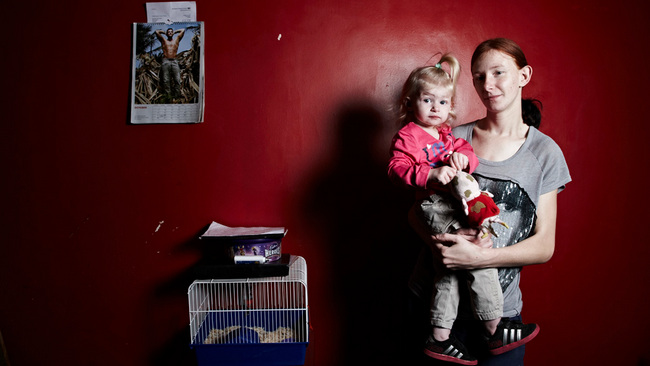Labour and ‘the lower-working-class’
‘The upper class desire to remain so, the middle class wish to overthrow the upper class, and the lower class want a classless system.’ (George Orwell)
In his 1937 book, The Road to Wigan Pier, George Orwell, describes what it was like to be born into a family that saw itself as of a superior class to that of the working class ‘I was born into what you might describe as the lower-upper-middle class… In the kind of shabby-genteel family that I am talking about there is far more consciousness of poverty than in any working-class family above the level of the dole.’
Back in 1966 class differences were much more obvious to everyone. In a television programme of that year, The Frost Report, John Cleese, Ronnie Barker and Ronnie Corbett acted out a class sketch. Utilising the differences in their heights, Cleese was upper class, Barker middle and Corbett lower. Lines include ‘middle class’ saying, I look up to him because he is upper class, but I look down on him because he is lower class.” Ronnie Corbett: “I know my place.” After describing the advantages of their two ‘superior’ classes, Corbett, looking upwards at both ends the sketch with, ‘I get a pain in the back of my neck.’
Speaking of pain, Labour are at pains to persuade UK capitalism that it need have no qualms about a Labour government. Labour will indeed do its utmost to carry on from the Tories the position of government as the executive committee for managing the common affairs of the whole bourgeoisie.
At Davos in January, the Labour shadow chancellor Rachel Reeves let it be known that, ‘With Labour, Britain will be open to business. We will restore stability and security into our economy. We will restore Britain’s reputation as a place to do business. And we will be a trusted partner with business in delivering the change our country and our economy needs’ (Guardian, 16 January).
A few months on, they are letting it be known that they are going to be sorting out those pesky proles who can’t or won’t be active wage slaves. Social welfare costs the capitalist class as a whole money that they would much rather benefit from themselves rather than subsidise the – in their eyes – undeserving poor, scroungers and economically useless.
Labour’s shadow work and pensions secretary Liz Kendall has laid out their intentions:
‘Under a Labour government there would be “no option of a life on benefits”, the Party has said, as it set out plans to reduce the number of young people not in work, education or training.’
‘Under our changed Labour party, if you can work there will be no option of a life on benefits,’ she said in a speech to the centre-left Demos think-tank in London, where she sought to outline Labour’s commitment on “investing” in young people’ (Guardian, 4 March).

Ten years ago Channel Four aired a series of five programmes which looked at the lives of people living in Winson Green, Birmingham. The programmes were titled Benefits Street. The programmes have been called ‘poverty porn’ as they portrayed those featured in the worst possible light. Allegedly ninety percent of the street’s inhabitants were on benefits.
The Socialist Standard, February 2014, carried a TV review of Benefits Street.
‘Benefits Street (Channel 4): yet another tawdry docusoap which reveals how some people just leech off others. The real parasites here are, of course, the programme-makers – feeding off the lives of the people they film… The producers of Benefits Street have maintained that the programme is ‘fair and balanced’, but in reality it’s as fair and balanced as a broken see-saw. The editing, title and format of the show aim to exploit, rather than express the participants’ struggles. The producers have been taken in by the prevailing mood among the elite to demonise those victimised most by capitalism’.
The Labour Party appear now to have the same detestation and contempt for those in society on benefits as did the Channel Four producers of Benefits Street. You won’t hear it from them but the only solution to capitalism’s ills is its replacement by socialism.
DC
